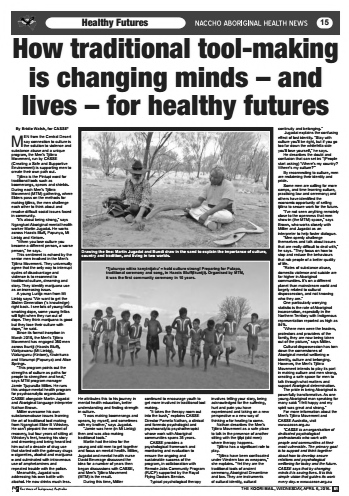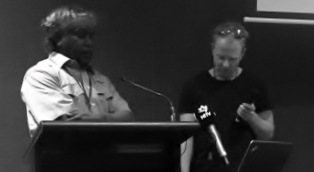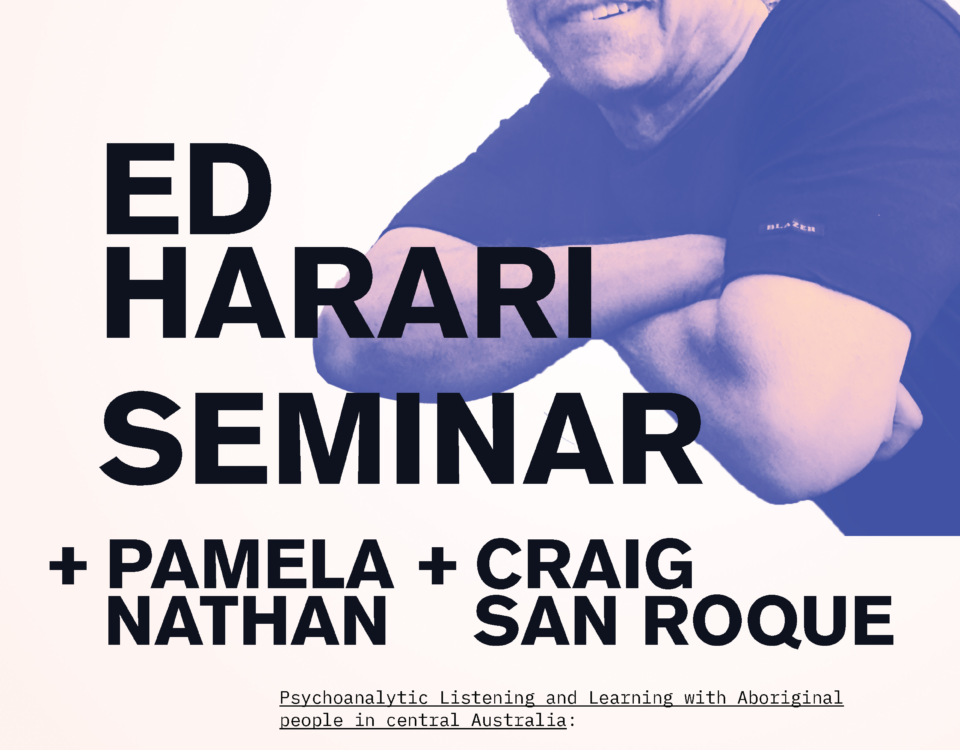A growing movement in Australia’s remote central and western desert region is re-establishing a cycle that was on the brink of destruction in order to change minds and save lives.
The emergence of the Men’s Tjilirra Movement (MTM), which has been facilitated by psychoanalytic organisation Creating A Safe Supportive Environment (CASSE) in collaboration with the Royal Flying Doctor Service (RFDS), is an innovative project which is using ‘tjilirra’ – traditional tools of ancient ceremony, Aboriginal dreamtime and law – as a means of building emotional, cultural and community wellbeing.
The founders and leaders of the movement will present their work at the inaugural National Aboriginal and Torres Strait Islander Suicide Prevention Conference, to be held in Alice Springs on the 5th and 6th of May.
According to Pamela Nathan, Director of CASSE’s Aboriginal Australian Relations Program, the importance of tjilirra has not been recognised in the western approach to psychological health.
“Tjilirra have often been confiscated under western law,” explained Ms Nathan, “yet they are fundamental instruments of cultural identity, cultural continuity and belonging.”
Ms Nathan will be co-presenting at the conference with CASSE’s MTM Program Manager, Jamie Millier Tjupurulla, Martin Jugadai and David Beveridge (both of the Royal Flying Doctor Service (RFDS) Remote Mental Health Team), and Interpreter and Cultural Advisor, Nathan Brown.
The practice of the elder men passing on their knowledge of making tjilirra to the younger generation is possibly 60,000 years old.
According to Ms Nathan, tjilirra both symbolise and cultivate continuity in being, affirmation of cultural worlds, kinship relationships and identity.
“The men involved with the movement say they feel ‘strong and proud’ when they are making tjilirra,” she said.
The heart of the Men’s Tjilirra Movement lies in the communities of Haasts Bluff (Ikuntji), Mt Liebig (Watiyawanu), Kintore (Walangurru), Papunya (Warumpi) and Kiwikurra.
“Some of the men involved with the MTM are among the last to cease living a nomadic lifestyle,” said Ms Nathan. “The collision between their ancient cultural way and western culture has been catastrophic.”
Since 2014, the MTM has engaged with over 350 men, making tools and passing on traditional knowledge. A partnership has now been forged with the Community Development Program, recognising the importance of the MTM’s role in the community. Large men’s meetings are now being held to talk about ‘the problem life’. One community has held the first community pulapa (ceremony) in over ten years, bringing families together singing and dancing the songs of country and strengthening community wellbeing.
“These are not ‘just tools’,” said Ms Nathan. “Tjilirra are tools for living in two very different worlds. Tjilirra are tools for empowerment and self-determination. Tjilirra are tools for healing and living.”
____________________
CASSE is a psychological not-for-profit organisation with the vision to change minds in order to save lives. CASSE aims to promote safe, supportive environments through psychoanalytic awareness. We focus on empowering people and communities to understand and work through their trauma (manifest by suicide, depression, violence, substance usage) by preserving and strengthening cultural life and capacity between the generations in a self-determining way.
Event details:
What: National Aboriginal and Torres Strait Islander Suicide Prevention Conference
When: Thursday 5 May – Friday 6 May 2016
Where: Alice Springs Convention Centre
MEDIA CONTACT to arrange interviews: Elizabeth Lindner, E: elizabeth.lindner@casse.org.au, T: 0407 725 242
Pamela Nathan is a forensic and clinical psychologist and psychoanalytic psychotherapist and is the Director of CASSE’s Aboriginal Australian Relations Program, working on violence and trauma with Aboriginal organisations, communities and people in central Australia.








